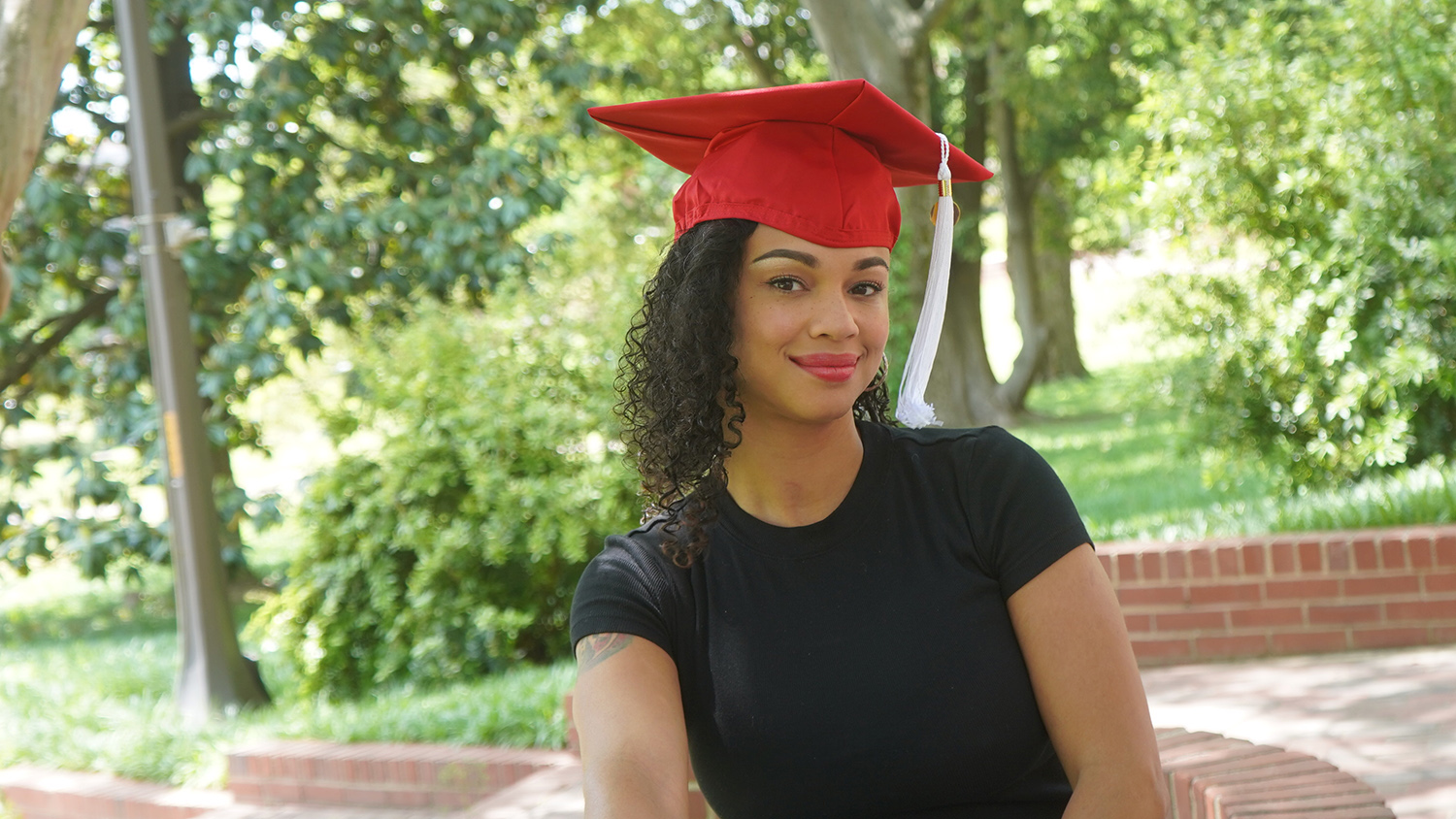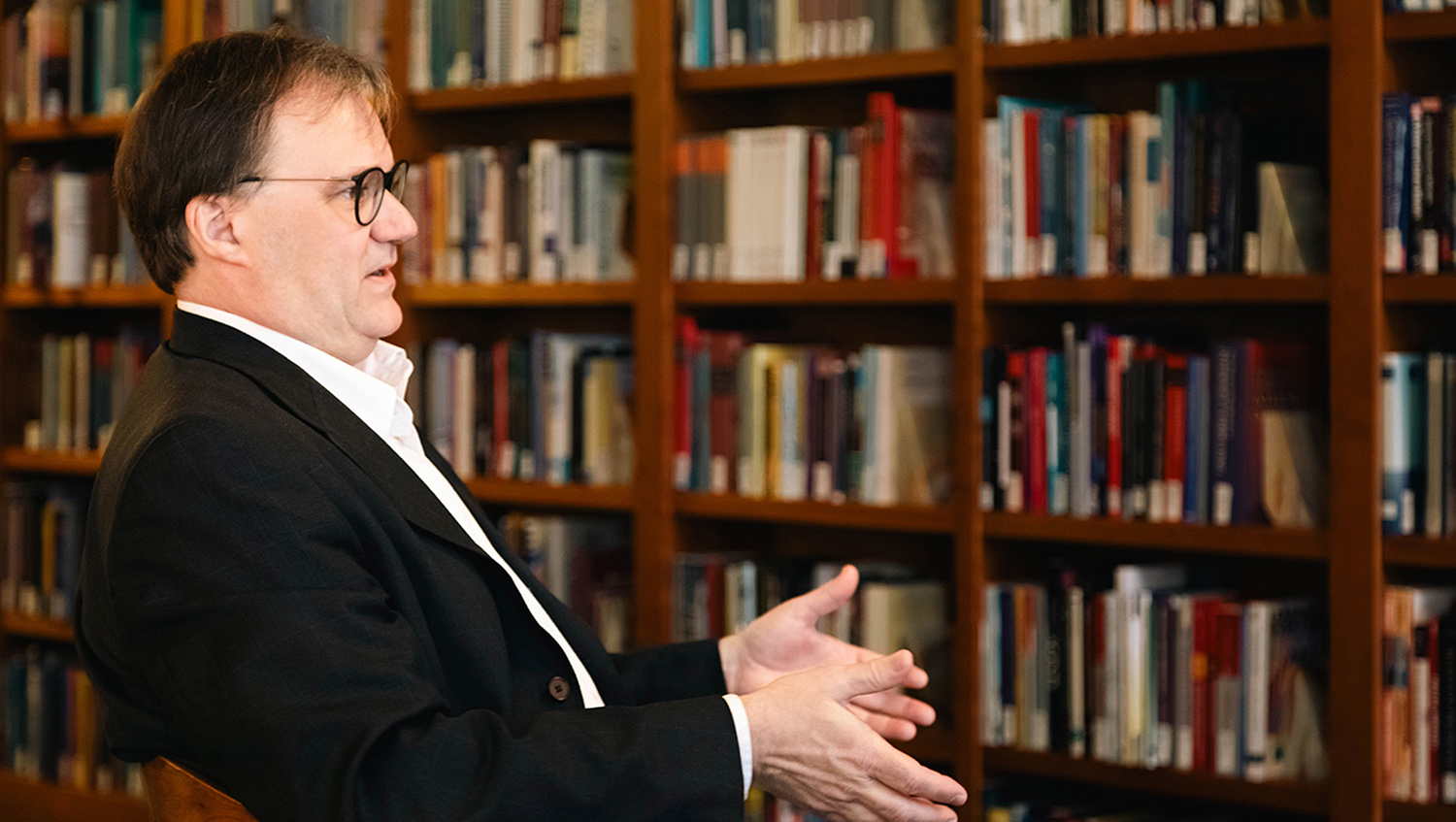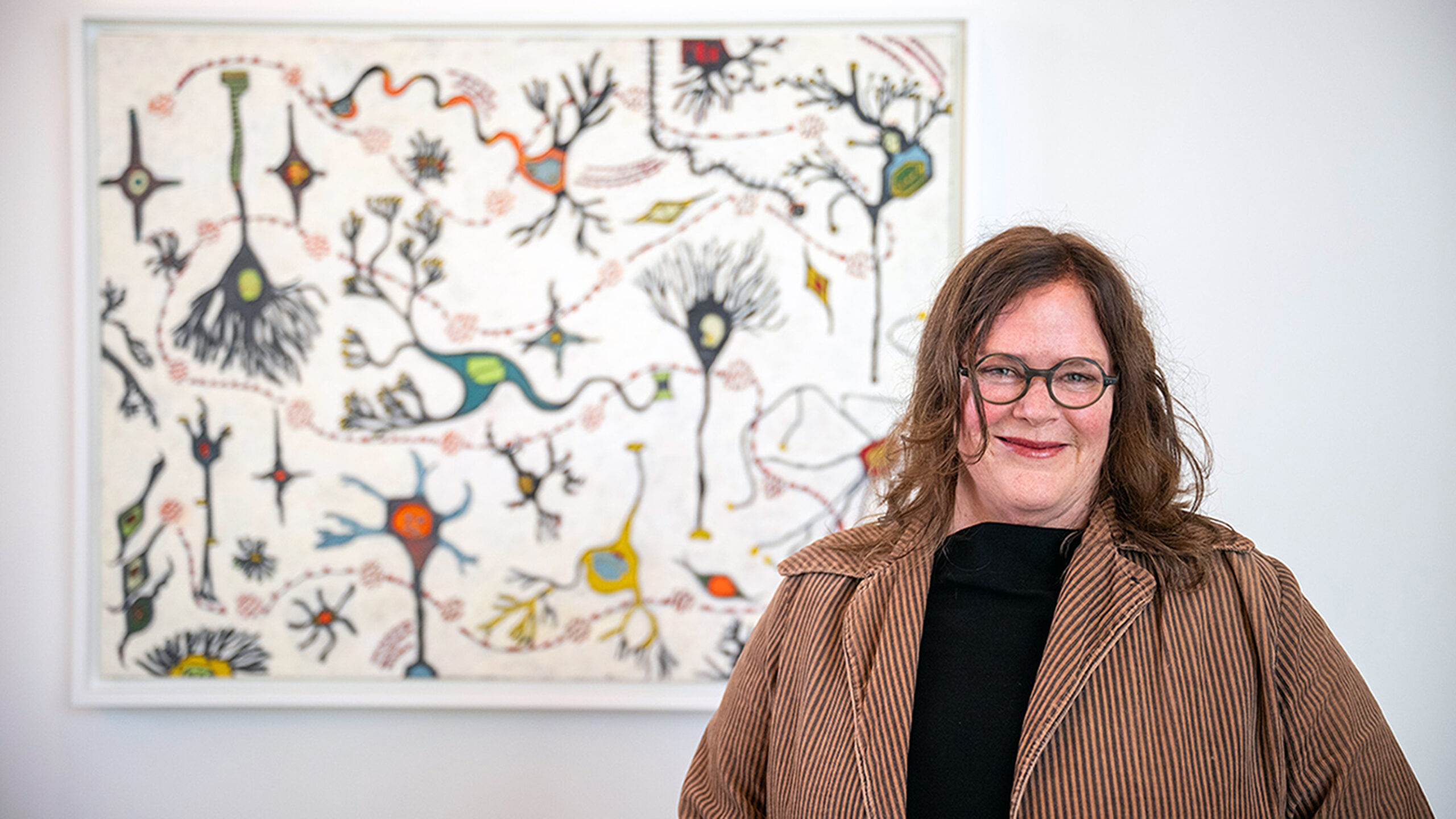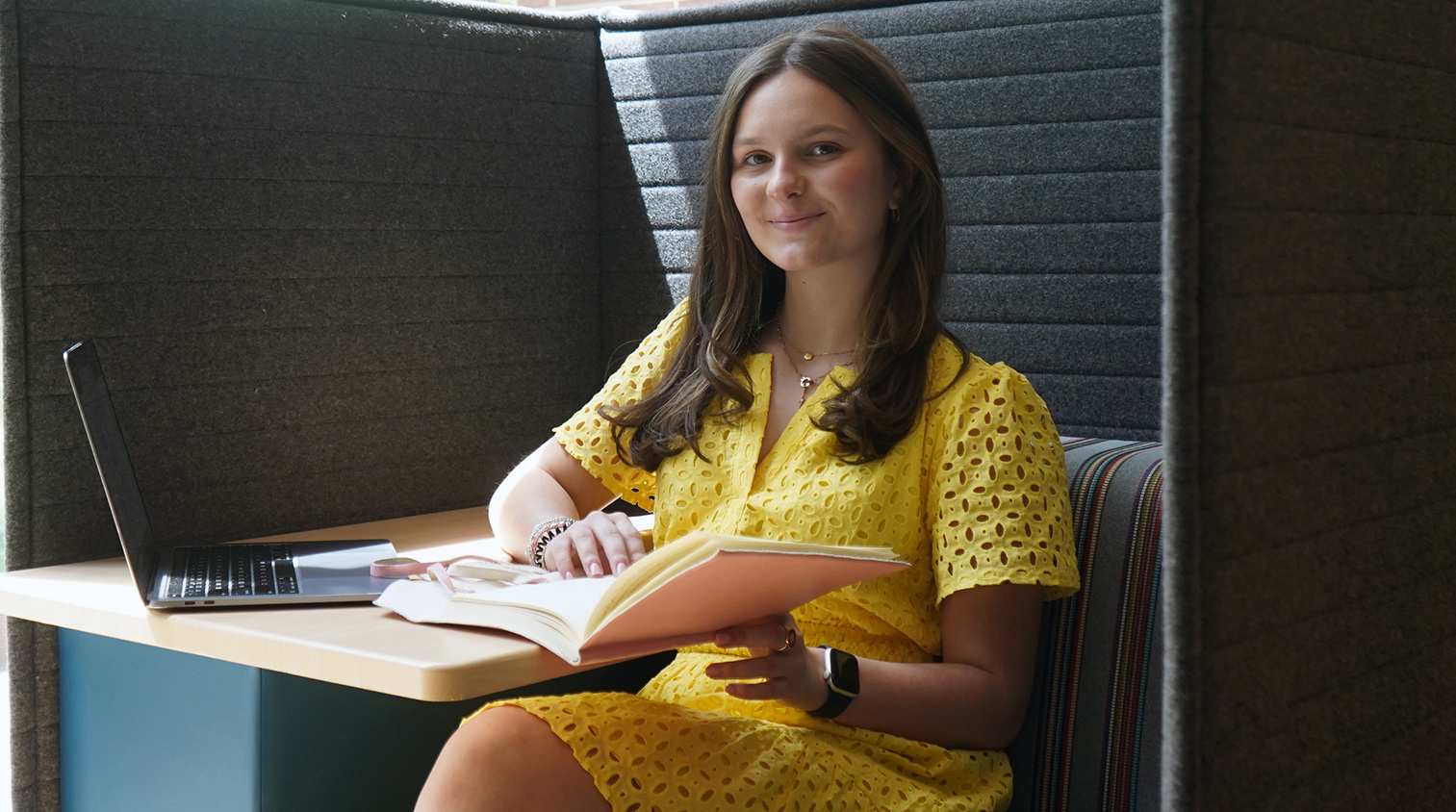Terrica Lewis, this spring’s student commencement speaker, is living proof that it’s never too late to chase your dream. Her journey — through military service, motherhood, creative work and a bachelor’s degree 18 years in the making — is one of resilience and purpose.
Lewis will graduate with a degree in communication at NC State’s Spring 2025 Commencement at 9 a.m. on May 3 at Carter-Finley Stadium. Her story shows that success is always within reach and persistence paves the way forward.
Her path hasn’t been traditional, but it’s been defined by determination and the belief that failure is simply part of growth. That you-can-do-it-all mindset is at the heart of Lewis’s message to the Class of 2025.
“We didn’t just earn degrees today,” Lewis plans to tell her fellow graduates. “We proved that no dream is too distant, no failure too final and no age too old to learn.”
Lewis, who describes herself as a collector of dreams deferred but never abandoned, is the first in her family to graduate from college. Her’s is an incredible college journey that began 18 years ago when she also became a teen mom, which Lewis says shaped her strength and deepened her purpose. She also half-jokingly confesses that she has been in a quiet race to the graduation stage with her eldest son, who will graduate soon from high school.
Additionally, Lewis says her stint in the U.S. Navy provided the foundation for the person she is today.
“One of the most important things the military taught me was how to learn from others — regardless of age, class, race or creed,” she says, adding that she also learned the power of teamwork and the value of putting the greater good first.
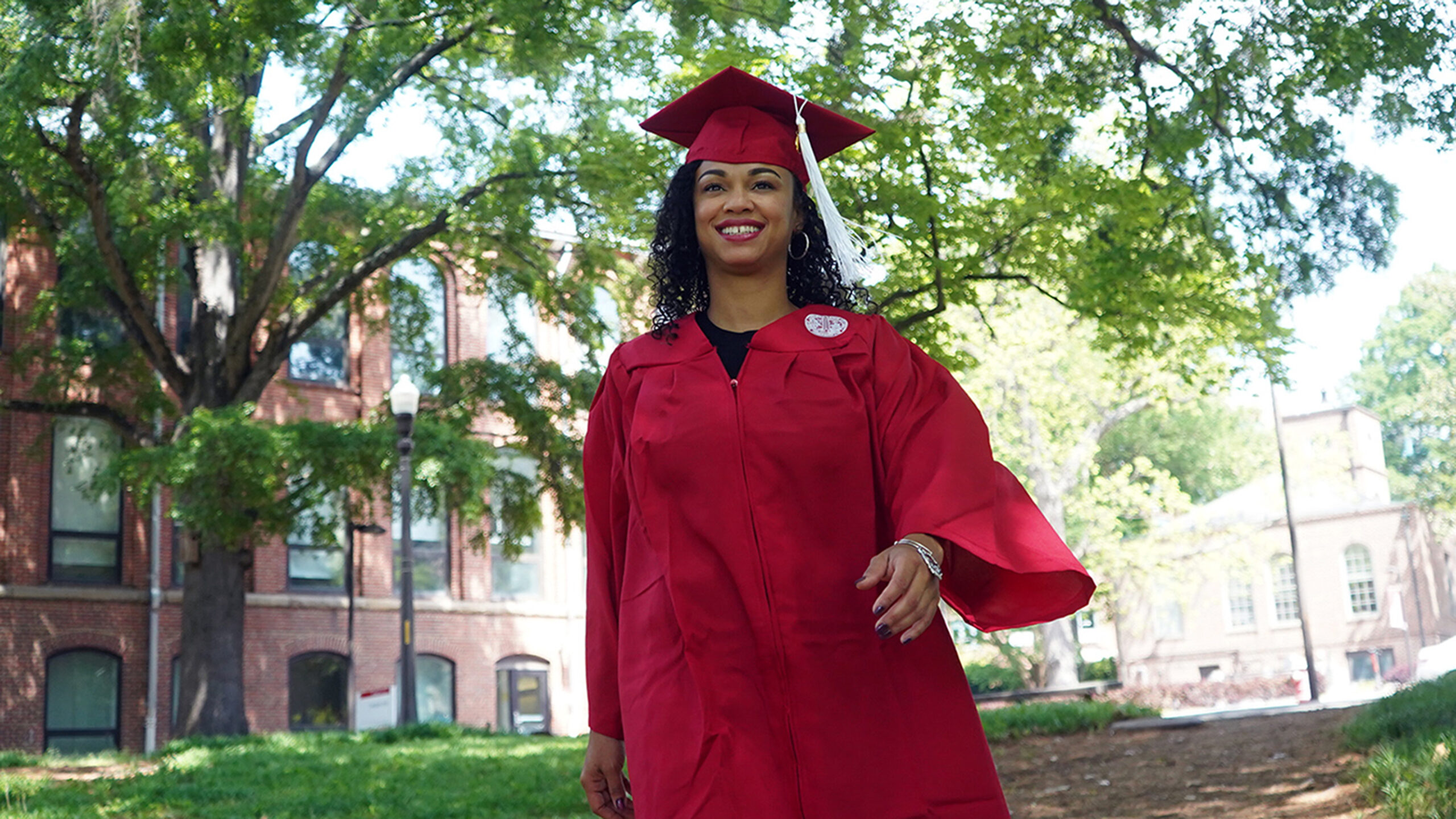
The discipline and structure instilled during her time in the service became the backbone of her approach to life and learning, she says. Her interest in technology, sparked before joining the military, grew as she recognized its critical role in protecting lives and ensuring security, leading to her role as an information systems technician in the Navy.
Lewis says those early lessons followed her into every classroom she entered, including when she earned an associate’s degree in digital film and video production.
“Photography and filmmaking taught me to tell stories with intention — to notice light, shadow, nuance and silence,” Lewis explains. “My IT background grounded me in precision and structure.”
Those creative and technical skills intersected during Lewis’s time at NC State and guided the way she approaches communication. Lewis says in her courses and work with belonging initiatives, she explored themes like identity and justice, using both narrative and data “to tell stories that influence policy and investigate the overlooked details that shape our world.”
Returning to school as a nontraditional student came with challenges, particularly while balancing motherhood and personal growth. “But I was determined to bring my full self to the table,” she says.
“No dream is too distant, no failure too final and no age too old to learn.”
At NC State, Lewis found a supportive community. Rather than feeling out of place, she discovered that her lived experience was a valuable asset. “What surprised me most was how much support I found,” she says, adding that sense of belonging fueled her growth.
Lewis’s return to school, however, was not just about finishing what she started; she describes it as the transformative power of education. She says she chose NC State for its blend of innovation, accessibility and diversity of thought. She called the communication program the perfect fit since it blends all her passions – technology, media, justice and education.
“It also gave me the language, strategy and context for the work I want to do in the world,” Lewis says. That work includes attending law school and using her communication skills to advocate for policy change and address overlooked aspects of justice.
Describing how her humanities and social sciences background will help her achieve her career goal, Lewis says: “It gave me what no technical manual ever could — perspective.”
She adds that it also taught her to ask better questions, listen with intention and navigate systems ethically, skills she believes will define her future advocacy work.
For Lewis, people are at the center of all her endeavors, whether in technology, law or communication. She says her education has made her a more thoughtful, culturally competent and justice-driven problem solver.
So how does she envision combining her diverse skills? Lewis says she plans to attend law school with a focus on digital justice and AI ethics, helping to shape the relationship between technology and humanity, and advocating for equitable access to digital resources and protections. Long-term, she hopes to work in higher education, reimagining how we teach, communicate and evolve with the world.
“My degree gave me more than just tools — it gave me purpose,” Lewis says. “It helped me become a translator between disciplines, a connector of stories and systems.” Whether she’s defending marginalized communities or analyzing digital policy, Lewis says she’ll draw on the critical thinking, storytelling and advocacy skills she developed at NC State.
Lewis has a clear message for the Class of 2025. What matters is that your journey doesn’t have to be flawless to be impactful. She wants graduates to walk away knowing their story matters — even and especially — the messy parts.
“We don’t have to fit into traditional boxes to make a meaningful impact,” she says. “College is where we come to learn, and that includes learning how to make space for differences.”
On May 3, Lewis will leave her fellow graduates with a heartfelt call to action: “Now, let’s go think and do something extraordinary!”
- Categories:
